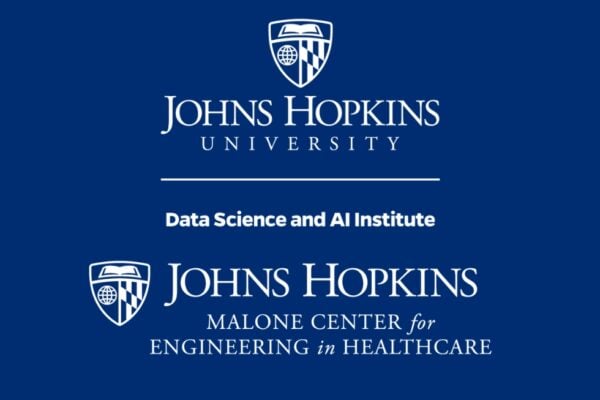By: Jaimie Patterson

Inaugural recipients of DSAI Demonstration Projects Awards announced
- July 29, 2024
- Center News
Two of the selected projects in medicine and health care are co-sponsored with the Malone Center for Engineering in Healthcare.

Welcoming the new cohort of Malone Postdoctoral Fellows
- July 25, 2024
- Center News
Taylor Bobrow, Jie Gao, and Danielle Ripsman comprise the latest cohort selected for the Malone Postdoctoral Fellows Program, which provides postdoctoral researchers with resources to support clinically-facing research, faculty mentorship and collaboration, and the opportunity to play a role in the Malone Center’s research mission.

What policymakers should know about AI
- July 22, 2024
- Machine Learning and Artificial Intelligence
Biostatistician Brian Caffo explains why the Johns Hopkins University hosted a briefing to help congressional staff learn more about artificial intelligence and its many applications.

Kimia Ghobadi awarded Johns Hopkins AITC funding
- July 17, 2024
- Center NewsSystems Modeling and Optimization
This round of grant recipients will receive funding to leverage AI to support healthy aging and ease the burden placed on caregivers.

Mathias Unberath earns Johns Hopkins Catalyst Award
- July 11, 2024
- Center News
Honorees representing dozens of fields across the university will receive $75,000 each to support their work.

Malone faculty receive Johns Hopkins Discovery Awards
- July 8, 2024
- Center News
Winning projects, chosen from a record 286 proposals, include 148 individuals from across the university.